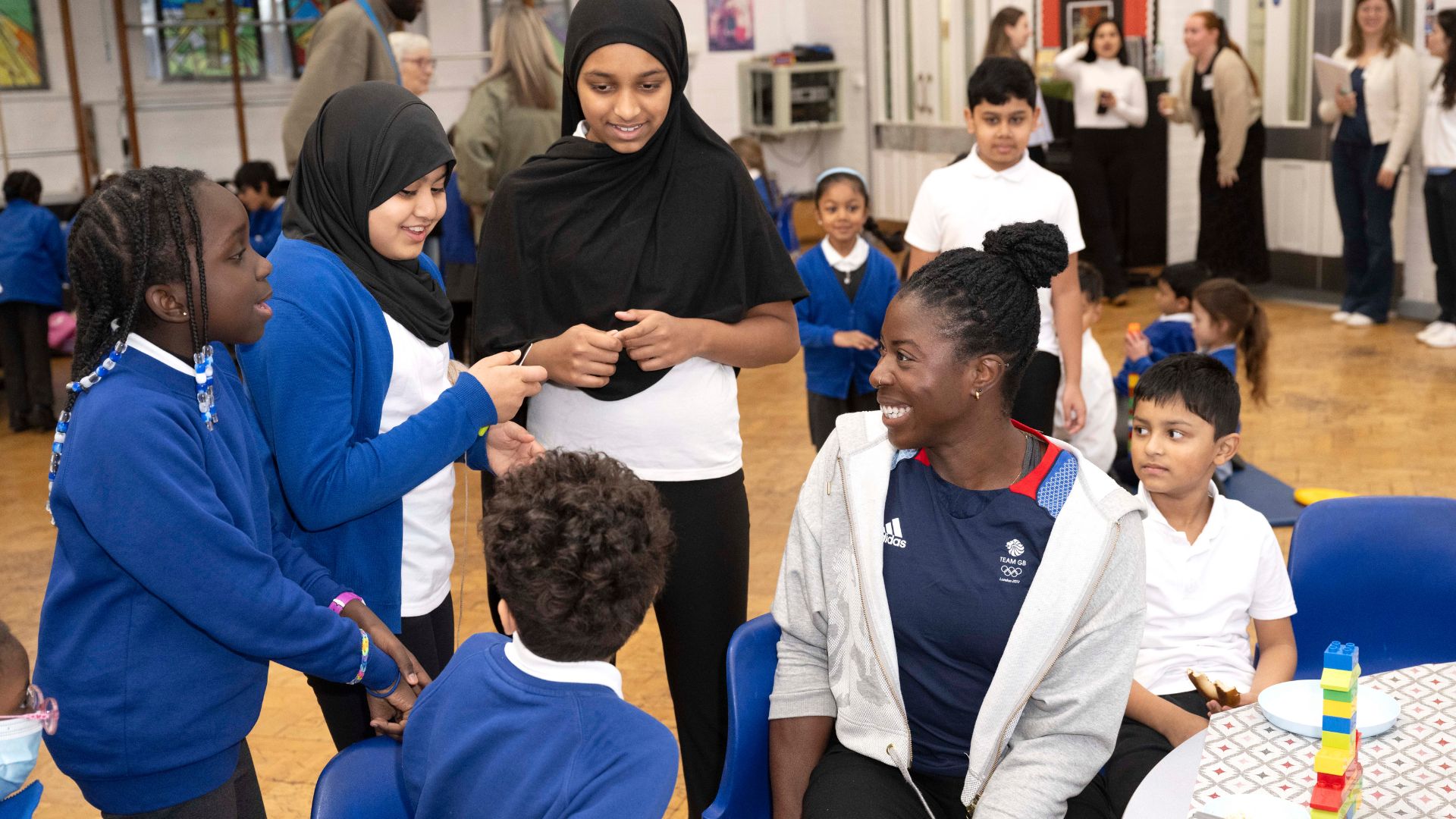The former Team GB athlete is hosting an assembly after a visit to the East London school’s free breakfast club on Tuesday (19 November). Labour campaigned on a promise of free breakfast clubs in every English primary school. Some 2,750 schools have since joined the scheme.
With around 40 attendees daily – a quarter of the student body – the St John’s breakfast club has been a “big success”, says deputy head Bal Jheeta.
“If they’re hungry, we give them food, no questions asked,” she tells Big Issue. “The vision is to create a warm environment and just take any stigma or negativity away. Such a huge barrier to learning is lifted when they’ve eaten.”
Food insecurity remains stubbornly high in Britain. Some 18% of children live in households experiencing it – around five children in a class of 30. Around 46% more children face hunger and hardship than two decades ago.
“These figures are shameful,” says Christine Ohuruogu.
“As a society, if we can’t feed our kids breakfast in the morning, that’s not a good look for us. It’s not a good way to set up our kids,” she tells Big Issue.
Advertising helps fund Big Issue’s mission to end poverty
“Our body needs fuel. Our minds need to be fuelled. So it is a really damning indictment, I’d say, of us as a society, that we are sending these youngsters who will be leading tomorrow into school with no food and not the proper nourishment they need to get through their day.”
Magic Breakfast – the charity providing the food, in partnership with Quaker Oats – commissioned research showing the impact of breakfast clubs. Children with access to one achieve an average of two months’ additional progress compared to those without.
“We see every day how a healthy breakfast can transform a child’s ability to learn, focus and thrive,” said Emily Wilkie, director of fundraising and development at Magic Breakfast. “Yet too many children across the UK still start their day too hungry to learn.”
The issue is close to home for Christine Ohuruogu. Born in Forest Gate hospital to Nigerian parents, she was raised just a kilometre from the site of the London Olympic Stadium.
“I remember my chaotic mornings at school, getting ready, and I probably wouldn’t always leave with a breakfast, you know, parents are always busy,” she recalls. Years on, she still lives in East London.
“This is where I’m from, and I think it’s really fascinating for the kids to know, ‘Oh my gosh, you came from just down the road. Nothing’s impossible. Nothing’s out of reach,’” she says.
Advertising helps fund Big Issue’s mission to end poverty
“I walked on the same roads, I went to the same parks, same school, and I was able to achieve something. So I think that’s a really important message I can pass on by just being present and showing them attention. They deserve it.”
Some 48% of children in Tower Hamlets live in poverty – the worst figure of any London borough. Last week, the English Indices of Deprivation Report 2025 presented even more damning data: Tower Hamlets has the highest child deprivation rate in England, at 71%.
While breakfast clubs tackle nutritional inequalities, think tanks argue that abolishing the two-child benefit cap would be the most cost-effective way to reduce child poverty. Ditching the cap – which restricts child-related benefits (like universal credit and tax credit) to only the first two children in most families – would lift 300,000 children out of poverty.
The government’s long-awaited child poverty strategy is expected to be set out alongside the autumn budget, with ministers hinting that removing the two-child benefit cap will be one of its centrepieces.
Magic Breakfast currently supports more than 300,000 children and young people. But the charity argues that targeted provision can only go so far – lasting change requires policy. Earlier this month, the organisation signed an open letter warning the government against “half-measures” on the two-child limit.
“Every day the two-child limit remains, in any form, it pushes children into poverty,” the letter, organised by CPAG, warns. “Now is the moment for the prime minister and chancellor to hear the voices of the UK’s children and take this vital opportunity to do the right thing.”
Advertising helps fund Big Issue’s mission to end poverty
Statistically, almost half of the children in Christine Ohuruogu’s assembly are living in poverty. Thanks to the breakfast club, at least they get a decent start to the day.
“I was really happy to see you had a good breakfast this morning,” she told them. “It’s really important to me, for me as an athlete, that I eat the right food as well. Without it, we can’t be our best.”
Do you have a story to tell or opinions to share about this? Get in touch and tell us more.
Change a vendor’s life this Christmas.
Buy from your local Big Issue vendor every week – or support online with a vendor support kit or a subscription – and help people work their way out of poverty with dignity.









